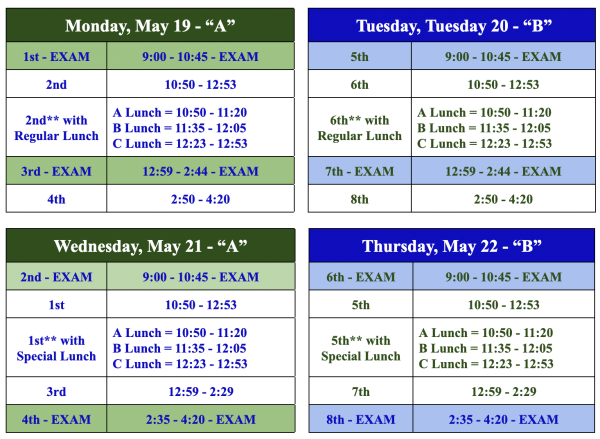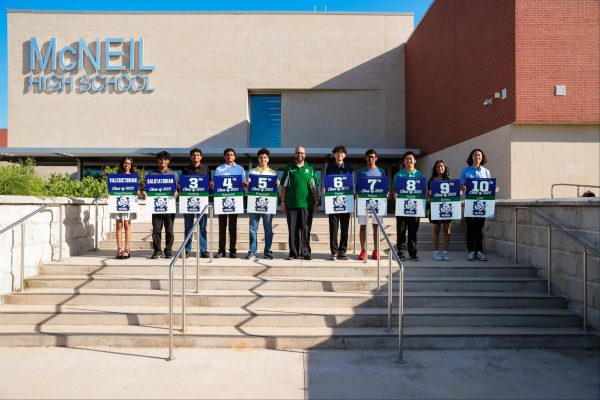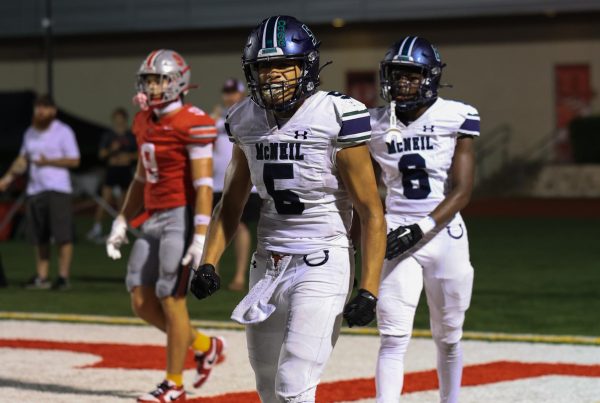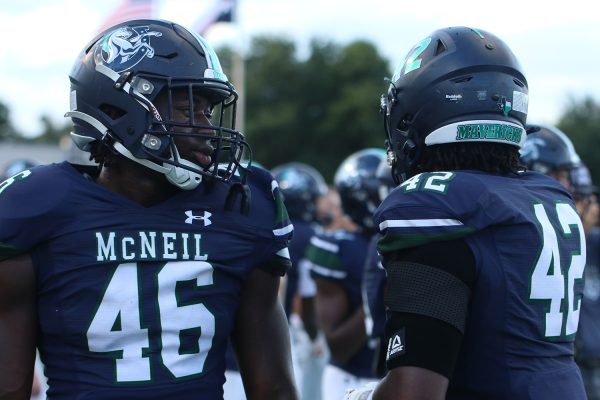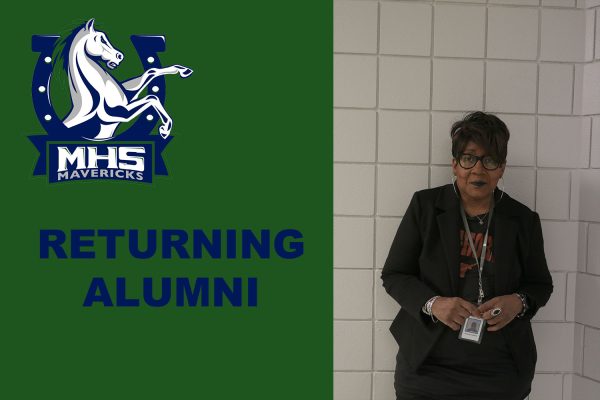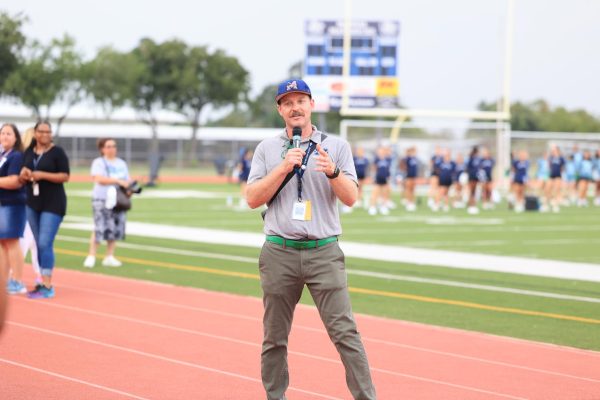All-State Choir Camp

Image by Southwest Emblem
This is the logo of the Texas All State Choir competition.
On Monday Aug. 30, McNeil’s music wing held the first RRISD All-State choir camp since 2019. The All-State camp was a meeting of the 2021 All-State competitors from Hutto and Round Rock ISD where they could work on the newly released music as a group with choir directors from other schools. The workshop focused on learning pitches, words, rhythms and the best audition practices. The option of going to the camp was a fresh experience for many because the 2020 camp was cancelled due to the Coronavirus.
“There were no camps last year,” junior Clarissa Burrow said. “Last year was just really wonky, so a lot of us don’t even count it. There weren’t any camps, and having camp definitely does help with the All-State process. I’m just really excited we’re going back to normal.”
The All-State competition will begin with the first round on Sept. 18. Round one includes roughly 1,600 students from all over the region, including Round Rock ISD, Georgetown ISD, Manor ISD, Pflugerville ISD, Taylor ISD and Hutto ISD.
“What they do in round one is they put some difficult things in to weed out most people who don’t understand,” junior Isabella Thornton said. “That way, people can advance to round two. If I don’t catch one of those things, they’ll cut me out immediately, so that’s kind of what I’m worried about.”
The judges then narrow it down to approximately 30 kids per audition room. Those lucky few advance to the next level where the competition is once again thinned to around 18 students per audition room for round three. After that level, the judges pick five remaining competitors go to Waco to compete against four other Regions to compete for one of eight spots in the All-State choir. If a student gets into the All-State choir, they beat roughly 30,000 students for their spot. The All-State students spend a week in San Antonio with the top choral singers of Texas to work with a famous clinician and perform to an audience of around 20,000.
“This is the highest honor a student can make,” choir director Beth Williams said. “Oftentimes, colleges will offer large scholarships, even some full rides, for All-State members to come study at their school.”
The All-State camp is beneficial to students who attend because it allows them to work through the music with professionals, as well as fellow students who are going through the same difficulties they are.
“With the camp, you have teachers who have years of experience,” sophomore Anish Saha said. “They’ve done this track dozens of times. They know what they’re doing and they have plenty of vocal experience. Plus, there are other kids with you, so it’s a group experience with a solo thing. You get to get a feel for other people in your section. It makes it a whole lot easier.”
Choir directors at the camp helped students with details in their music that may have been hard to work on individually.
“They helped us with pronunciation, vowels and diction,” Thornton said. “Dynamics, as well. That’s a really big thing. That way the song isn’t just one continuous monotone. That will be a big factor in All-State, so I’m really glad we got to work on it.”
Though the school district did provide an All-State camp towards the beginning of the competition, learning music for it is a mostly individual process.
“This competition stuff, it’s not really classroom-endorsed,” Burrow said. “It’s more of an outside of school thing where you have to learn music on your own. It’s definitely more independent. If you’re not good at learning music by yourself, good luck!”
The process of learning music for a competition differs from student to student. Some students rely on direct instruction and guidance from their choir teachers.
“Normally, I will get the music and look at it by myself to see if I can pick out anything that I understand on my own,” Thornton said. “Then, the directors will go over it in class and during flex, and they’ll help me understand things that I didn’t understand by myself. It’s a lot of drilling and repetition.”
Other students are perfectly content with running their music by themselves.
“I am one of the lucky people because I am really fast at learning music,” Burrow said. “Usually what I do is I work it in chunks. I do a chunk and then I do another chunk. But before I start working in chunks, I play the song first. I listen all the way through it. Then, I play it again and I try to sing as much as I can and mark the places I’m missing. Then I work those chunks.”
Although there may be many different strategies for learning new music for a competition, students agree that attending the All-State camp is beneficial to everyone.
“It’s very helpful in understanding how the songs are supposed to work,” Thornton said. “If you’re a freshman or you haven’t done the process before, then yes, attending camp is very necessary. You need some sort of guidance when it comes to the All-State process.”
Your donation will support the student journalists of McNeil High School. Your contribution will allow us to purchase equipment and cover our annual website hosting costs.



